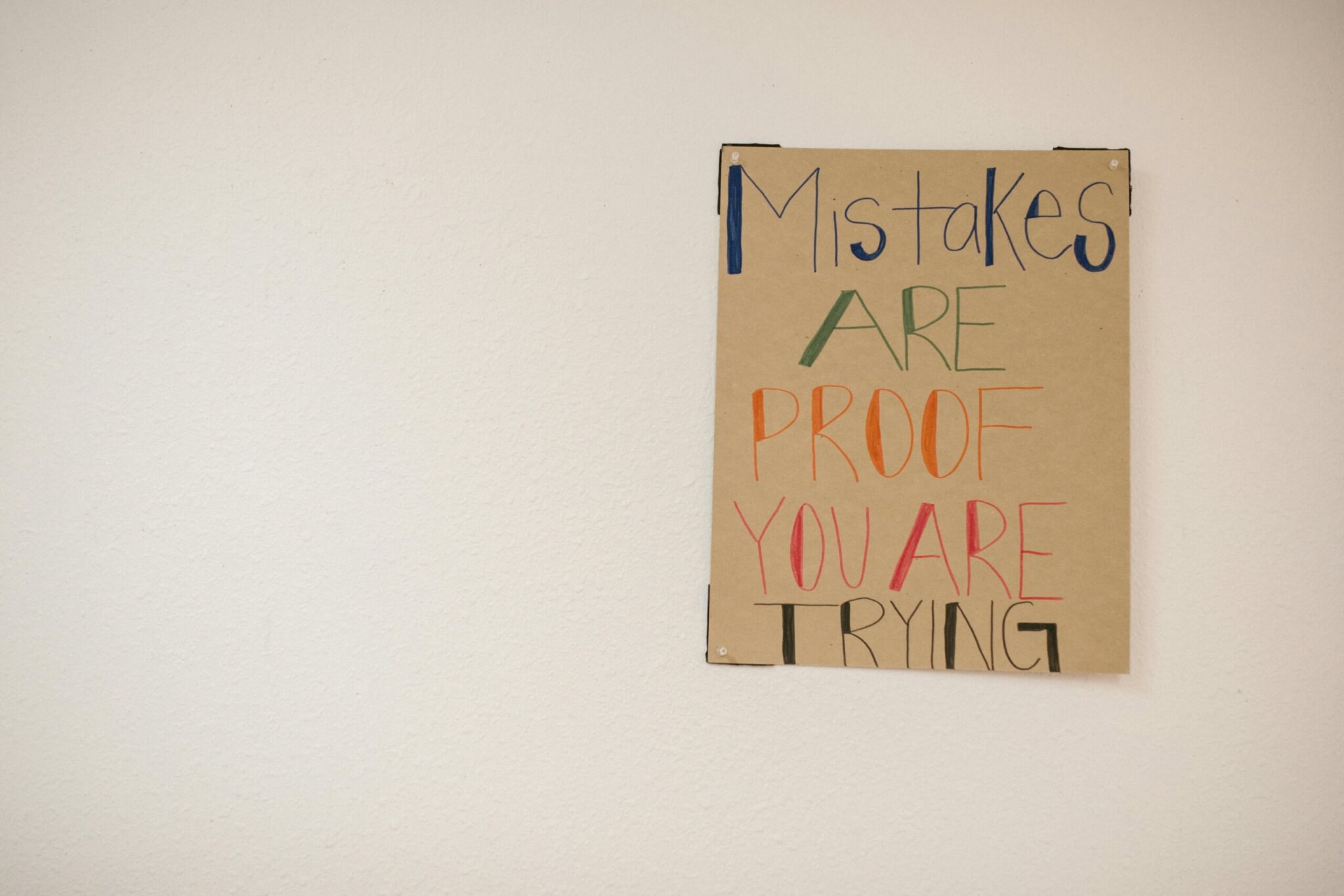Role Title: Lessons from Famous Decision Failures
Employer:
Required Experience:
Location:
Date published: 9 December 2024
Good decision-making is a skill anyone can improve. Whether in your career or personal life, decisions shape outcomes and define paths. But the art of decision-making isn’t about getting it perfect every time—it’s about learning from the times we didn’t.
This article dives into lessons from famous decision failures, offering actionable tips to refine your decision-making skills. You’ll discover how to evaluate your choices, celebrate successes, and most importantly, learn from missteps without guilt.
Ready to turn hindsight into foresight? Let’s get started.
Why Reviewing Decisions Matters
Reflection on past decisions is a powerful tool for growth. Imagine you’re trying to bake a cake, and the first attempt fails. Without reviewing what went wrong—too much sugar, too little flour—you’d repeat the same mistakes.
Similarly, decisions in life and work benefit from thoughtful review. Whether it’s a career choice, a financial investment, or even personal relationships, reviewing past decisions helps:
- Spot patterns that lead to success or failure.
- Gain clarity on your thought processes.
- Make better choices in the future.
In a professional setting, decision reviews can foster innovation and prevent recurring mistakes. In personal life, they help build resilience and wisdom.
Spotting Patterns in Past Choices
Look back at your big decisions over the last five years. Were there common themes? Did impulsive choices lead to better outcomes, or were deliberate plans more effective?
Spotting patterns isn’t just about identifying failures. It’s also about recognizing what worked. If you notice that seeking advice before making a choice often led to success, make that a habit.
For instance, successful entrepreneurs often reflect on why their businesses thrived or struggled. By doing so, they refine strategies for their next venture.
What Went Right: Celebrate Wins
It’s easy to fixate on what went wrong, but celebrating wins is equally important. Reflecting on positive outcomes helps build confidence and reinforces good habits.
For example, say you negotiated a raise successfully. What did you do right? Did you research your market value or prepare persuasive arguments? Take note of these steps for future use.
Even small wins—like choosing the fastest route to work—deserve acknowledgment. Every success, big or small, contributes to your growth.
Learning from Missteps Without Guilt
Dwelling on mistakes with guilt can hinder growth. Instead, frame missteps as opportunities for learning.
Imagine you launched a project at work that failed. Instead of blaming yourself, dissect the situation:
- Were the goals realistic?
- Was the team aligned?
- Were external factors overlooked?
Adopt a growth mindset. Failure isn’t the opposite of success—it’s a part of the journey.
Lessons from Famous Decision Failures
Now, let’s explore some high-profile decision failures and the timeless lessons they offer.
1. The Titanic: Overconfidence and Assumptions
The Titanic was deemed “unsinkable,” leading its operators to ignore safety protocols, like insufficient lifeboats and excessive speed in iceberg-laden waters.
Lesson: Avoid overconfidence. Test assumptions and prepare for worst-case scenarios, no matter how unlikely they seem.
In your own life, don’t assume things will always go smoothly. Whether launching a new product or planning a family vacation, consider contingencies.
2. Kodak’s Fall: Ignoring Market Trends
Kodak invented the digital camera but shelved it to protect its film business. This decision allowed competitors to dominate the digital photography market.
Lesson: Adapt or perish. Stay attuned to market shifts and consumer behaviour.
If you’re in a career, think of how trends like AI or remote work could impact your field. Stay proactive and keep evolving.
3. Napoleon’s Invasion of Russia: Hubris in Planning
Napoleon’s ambitious invasion of Russia in 1812 failed spectacularly due to poor preparation and underestimating harsh winter conditions.
Lesson: Over ambition without planning is a recipe for disaster.
Before taking on a major challenge, assess risks thoroughly. For instance, don’t quit a stable job for a startup without evaluating its financial viability.
4. Blockbuster vs. Netflix: Missing Innovation
Blockbuster famously turned down the chance to buy Netflix for $50 million, failing to see the potential of streaming.
Lesson: Embrace innovation, even if it disrupts your current model.
For individuals, this could mean upskilling or exploring side hustles that align with emerging trends.
5. The Challenger Disaster: Groupthink at Play
NASA’s Challenger shuttle exploded in 1986 due to overlooked warnings about faulty O-rings. Fear of dissent within the team silenced crucial voices.
Lesson: Encourage diverse opinions and value dissent.
In team projects, foster open communication. Create an environment where everyone feels safe voicing concerns.
6. Real Estate Bubbles: When Everyone Follows the Herd
Real estate bubbles, like the 2008 financial crisis, are fueled by herd mentality—people invest blindly, assuming prices will keep rising.
Lesson: Think critically and avoid herd behaviour.
In your financial decisions, do your own research instead of blindly following trends.
7. Yahoo’s Decline: Missed Opportunities Galore
Yahoo passed on buying Google twice and failed to innovate, losing relevance in the digital era.
Lesson: Seize opportunities when they arise.
If you’re considering a career move or a business partnership, don’t let fear of risk paralyse you.
8. Lessons from Steve Jobs’ Return to Apple
When Steve Jobs returned to Apple, the company was struggling. His focus on simplicity and innovation turned Apple into a global powerhouse.
Lesson: Sometimes, revisiting fundamentals can lead to success.
If you’re stuck, strip back to basics. What are your core strengths? Focus on refining and leveraging them.
Avoiding Overthinking in Hindsight
Hindsight is valuable, but overthinking past decisions can lead to analysis paralysis. Instead of endlessly replaying “what-ifs,” ask yourself:
- What can I control now?
- How can I apply this lesson moving forward?
For example, if a job interview didn’t go well, don’t ruminate. Analyse what you could improve—research, confidence, or body language—and implement those changes next time.
Building Confidence Through Review
Reviewing decisions builds confidence by helping you understand your strengths and identify areas for improvement.
For instance, a friend of mine once regretted choosing a high-interest loan for his startup. Reflecting on the decision taught him to evaluate terms more carefully, a skill that saved him thousands in future deals.
Confidence doesn’t come from avoiding mistakes—it comes from facing them head-on and learning.
Practical Steps to Review Your Decisions
To wrap up, here’s a step-by-step guide to start reviewing decisions effectively:
- Schedule Reflection Time: Set aside weekly or monthly time to review key decisions.
- Ask Key Questions: What worked? What didn’t? What factors influenced the outcome?
- Track Decisions: Maintain a decision journal to spot patterns over time.
- Seek Feedback: Ask trusted friends or colleagues for their perspective.
- Focus on Growth: Frame mistakes as lessons, not failures.
Final Thoughts
Decisions are the building blocks of success. By reviewing past choices and learning from both wins and failures, you can refine your decision-making skills and approach future challenges with clarity and confidence.
Famous failures remind us that even the best decision-makers stumble. What sets them apart is their ability to reflect, adapt, and grow.
So, the next time you make a tough call, remember: it’s not about getting it perfect—it’s about getting better.




